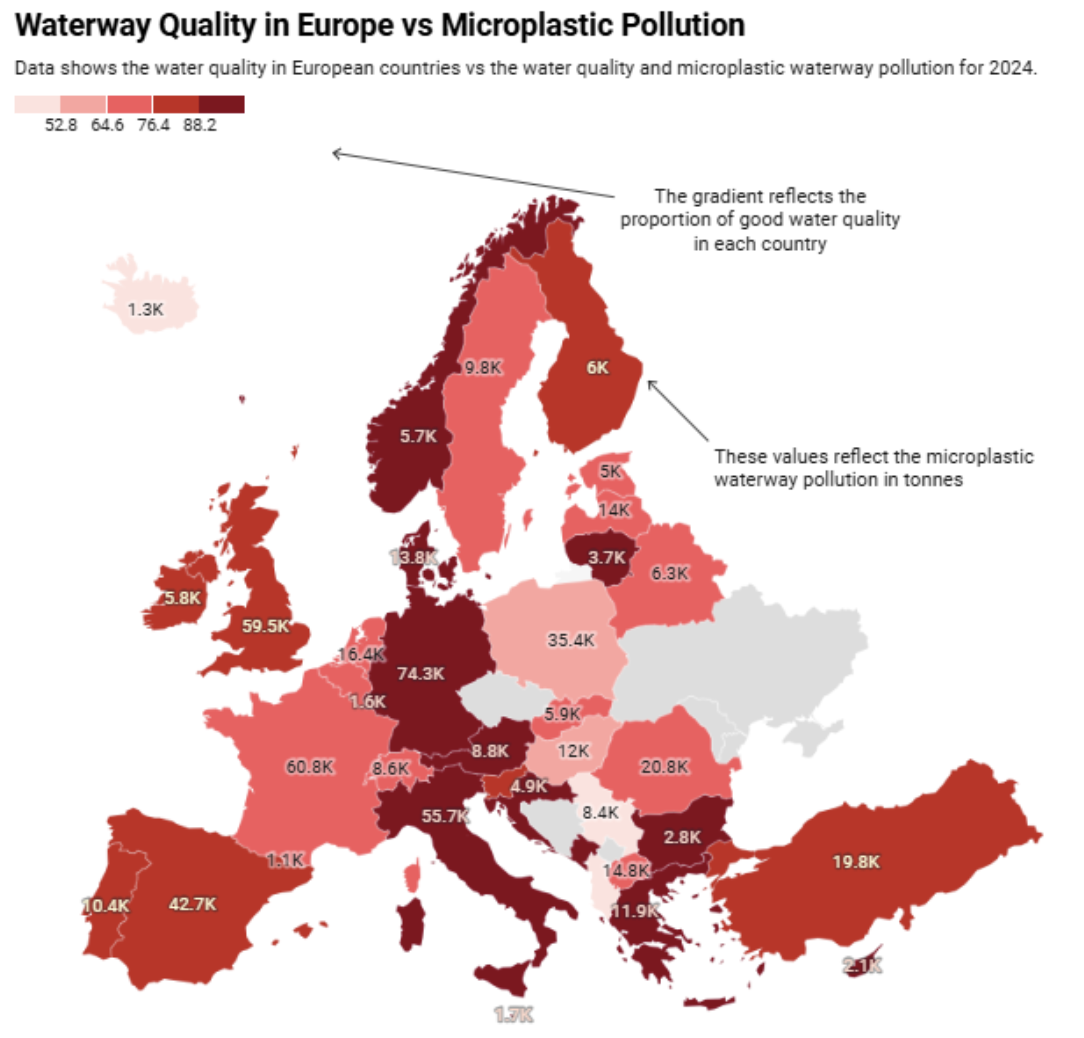Have you ever wondered how clean the waters are when you are surfing or paddle-boarding? Recent research from Rooster Sailing has unveiled a comprehensive study highlighting the disparities in water quality across Europe.
This research underscores the pressing challenges faced by certain regions, particularly in the Balkans, due to poor water quality and elevated microplastic pollution.
Key Findings from Rooster Sailing’s Research
The study evaluated European countries based on waterway quality and microplastic pollution levels. Notably, nations such as Norway, Cyprus, Austria, and Croatia emerged with commendable water quality scores. Conversely, countries including Serbia, Albania, and Bosnia and Herzegovina were identified as having subpar water quality, with scores ranging between 30-50%.

Balkan Region: A Focal Point of Concern
One notable point from the research is that the three countries with the poorest water quality are all situated in the Balkan region. This geographic concentration suggests systemic challenges affecting water resources in these nations. Factors contributing to this situation include:
- Transboundary Water Sources: A significant portion of Serbia’s water sources, approximately 85%, originate beyond its borders, notably from the Danube River. This external dependency complicates efforts to manage and improve water quality.
- Urbanization and Infrastructure Challenges: Rapid urban growth has escalated water consumption and strained existing sewer systems, leading to increased pollution levels in waterways.
Implications for Local Populations
The deteriorating water quality in these regions has tangible repercussions:
- Drinking Water Concerns: Residents may face limitations regarding tap water consumption, necessitating reliance on alternative water sources.
- Recreational Restrictions: Poor water conditions can lead to advisories or bans on water-based activities, impacting both locals and tourists.
Microplastic Pollution: A Growing Concern
Europe’s waterways are facing significant environmental challenges, particularly concerning water quality and microplastic pollution. While countries like Norway, Cyprus, Austria, and Croatia report high levels of good water quality. Serbia, Albania, Bosnia and Herzegovina were among the lowest scores in the study with high levels of microplastics and a poor infrastructure contributing to the lower quality of water systems. This disparity affects not only drinking water but also recreational activities and overall ecosystem health.
Addressing water pollution is crucial for safeguarding public health, preserving biodiversity, and ensuring the sustainability of water-based activities and industries across Europe.









No Comments